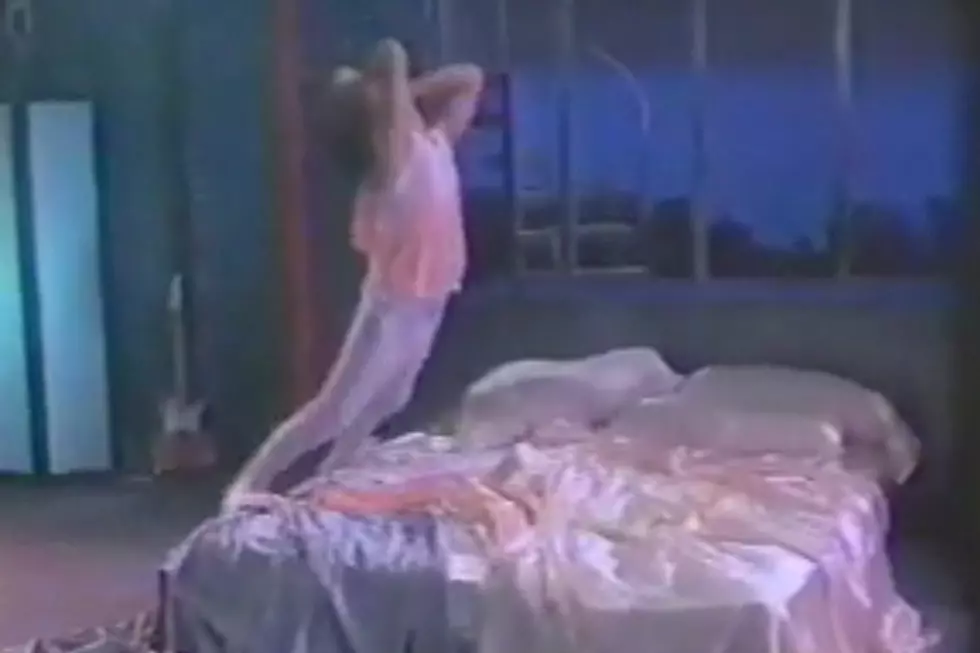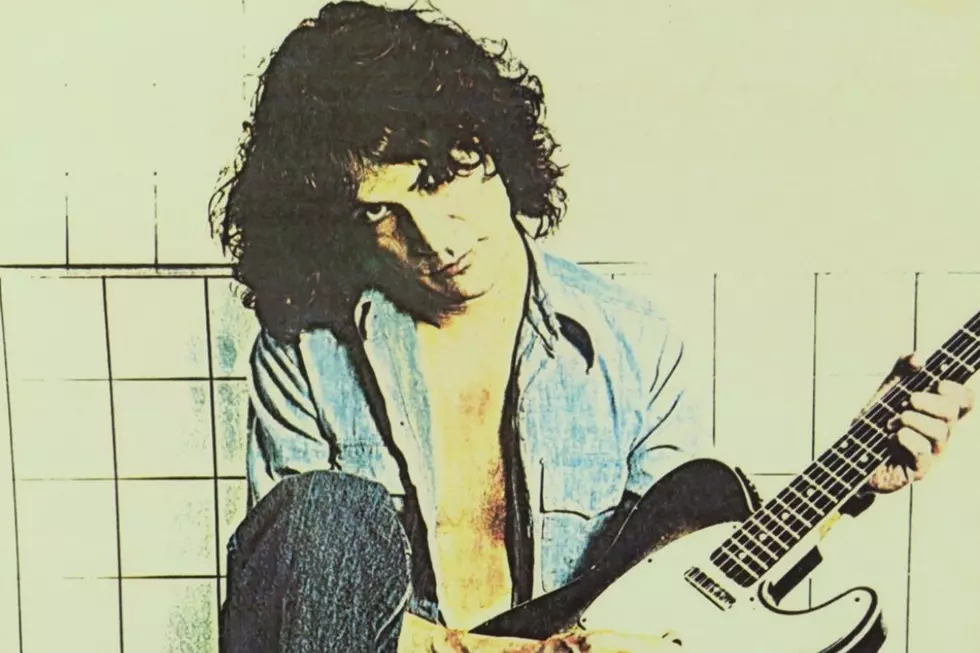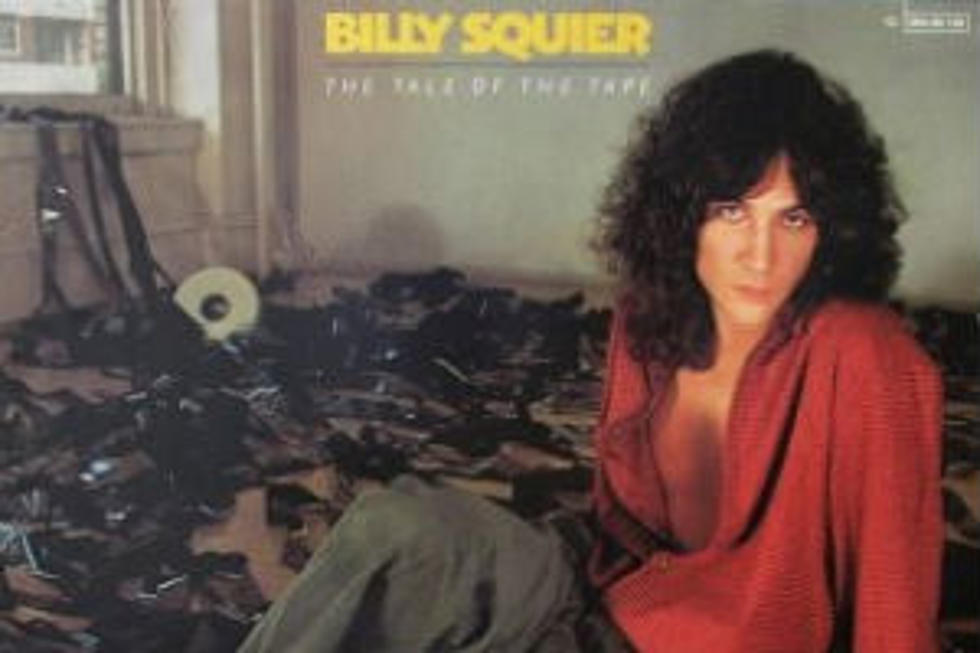
Did the ‘Rock Me Tonite’ Video Really Destroy Billy Squier’s Career?
Billy Squier spent the early '80s on a hot streak, releasing two multi-platinum Top 5 albums (1981's Don't Say No and 1982's Emotions in Motion) in a two-year span. For a brief while, it looked like he'd end up being one of the biggest rock acts of the '80s — and then, in the summer of 1984, it all came crashing down when he released one of the worst videos ever made.
Anyway, that's the story that's been built up around Squier's short-lived ascent to the top of the sales heap, and on the surface, it seems to make sense. Don't Say No and Emotions in Motion sold a combined five million copies, and initially, it looked like his 1984 follow-up, Signs of Life, might be an even bigger success; the record's lead-off single, "Rock Me Tonite," gave him a No. 1 rock hit and peaked at No. 15 on Billboard's Hot 100.
Unfortunately for Squier, like most singles of the day, "Rock Me Tonite" came with a video — and this particular video proved so hilariously awful that it's generally credited with sinking his entire career. Helmed by choreographer and future film director Kenny Ortega — working, according to Squier, from a concept he developed that was inspired by the visual aesthetic Paul Schrader used in Richard Gere's American Gigolo — it depicts Squier flailing effeminately around a pastel-lit bedroom and writhing on satin sheets.
According to conventional wisdom, the clip was so outrageously out of step with what rock fans were willing to tolerate that it stalled the single, derailed his 1984 tour and permanently cooled his momentum as a recording artist.
It's true that Signs of Life "only" went platinum, a relative disappointment following the wild success of its two immediate predecessors, and his next four major-label releases offered a study in sales decline: 1986's Enough Is Enough peaked at No. 61, 1989's Hear & Now at No. 64, 1991's Creatures of Habit at No. 117 and 1993's Tell the Truth failed to chart completely. There's no arguing "Rock Me Tonite" served as a Top 40 turning point for Squier's career; to date, it remains his last mainstream hit single.
Watch Billy Squier's 'Rock Me Tonite' Video
The pop audience may have deserted Squier, but he continued to score sizable rock hits into the '90s. All 10 of the singles he released following "Rock Me Tonite" made the Top 40 on Billboard's Mainstream Rock chart, and two (1989's "Don't Say You Love Me" and 1991's "She Goes Down") hit the Top 5 — all of which undermines the argument that the "Rock Me Tonite" video was somehow responsible for destroying Squier's credibility with rock listeners who were unwilling to support artists who acted less than macho.
It's also difficult to make that argument with anyone who remembers the music of the era. The early '80s may be chiefly remembered for glossy, androgynous pop acts like Culture Club or Duran Duran, but plenty of male rockers also experimented with makeup and sassy dance moves — and that isn't even taking into account the flamboyant image and stage presence of earlier acts like Queen or Elton John.
Just a quick scan through the top rock hits of 1983 and 1984 is all you need to find evidence that Squier was hardly alone in filming cheesy, low-budget or gender-bending videos. There's no denying that "Rock Me Tonite" is a terrible video, or that Squier looks foolish during pretty much every moment of the clip, but his flailing is no less dignified than Billy Idol's in "Eyes Without a Face" or Paul Stanley's in Kiss' clip for "Heaven's on Fire."
Perhaps he didn't look like the most masculine fellow, but neither did Mötley Crüe in the "Looks That Kill" video, or REO Speedwagon (in drag!) in "I Do' Wanna Know." A satin-clad bed is a dumb prop, but is it worse than invisible instruments?
And hey, two other rock legends managed to escape an even sillier — and far less masculine — video debacle relatively unscathed:
Watch David Bowie & Mick Jagger's 'Dancing In the Street' Video
As the counter-argument laid out at Less Than 500 Words concludes, Squier's downfall may not have been caused by anything more than simple audience burnout — the same thing that's killed the vast majority of recording careers for about as long as we've had recorded sound.
It's probably true that video killed a certain type of radio star (Christopher Cross, we hardly knew ye), still it's unfair to pin Squier's fast fade on rock fans deserting him after suddenly believing he was gay. The pop audience has always been fickle; few artists are lucky enough to sustain mainstream success over a long period. "Rock Me Tonite" may not have helped his odds, but it's probably most likely that Squier simply fell victim to listeners' changing whims.
Not that he necessarily agrees. "I went from 15,000 and 20,000 people a night to 10,000 people. Everything I’d worked for my whole life was crumbling, and I couldn’t stop it. How can a four-minute video do that? Okay, it sucked. So? Kenny Ortega didn’t get hurt by this; I did," Squier said in I Want My MTV: The Uncensored Story of the Music Video Revolution. "That’s ironic. Nobody said, 'I’m not gonna hire him; look what he did to Billy Squier!' He just moved on. The only person who got hurt by it was me. If you want to get really dramatic, you could say the guy crippled me."
Ortega, for whatever it's worth, rebuts Squier's argument. "If anything, I tried to toughen the image he was projecting," he insisted in Tarnished Gold: The Record Industry Revisited. Adding that he and the video's editor were so unhappy with the results that they tried to have their names removed from the final credits, he pointed the finger of blame back at his client. "Let there be no doubt, 'Rock Me Tonite' was a Billy Squier video in every sense. If it has damaged his career, he has no one to blame but himself."
Rock Stars Flipping You Off
More From US 103.1 FM








